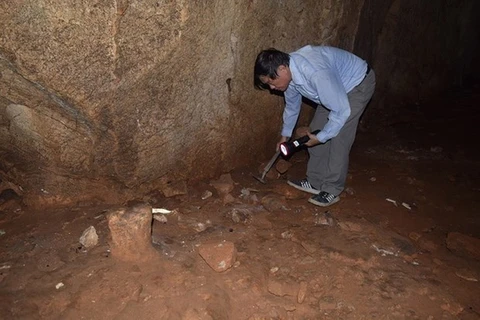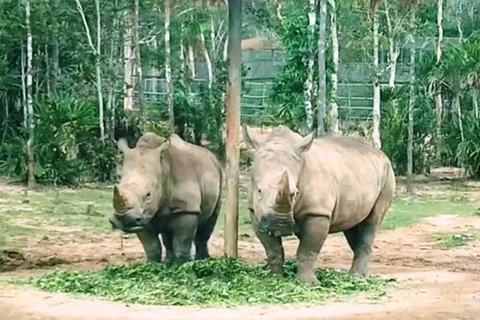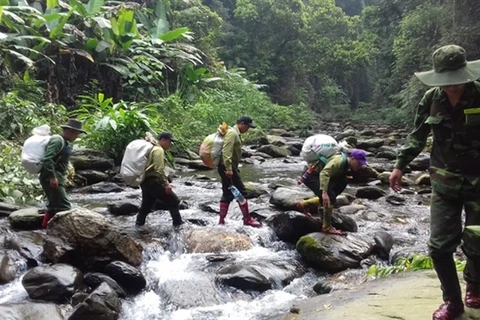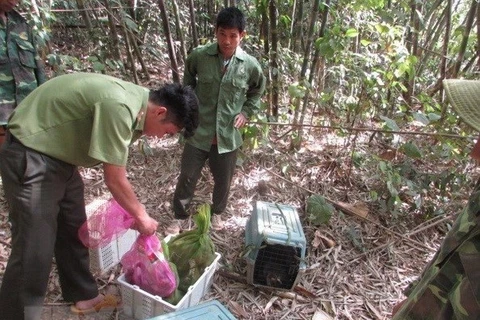HCM City (VNS/VNA) — The Sai Gon Zoo and Botanical Garden in HCM City, one of the world's oldest, has received several tonnes of meat, fruit and vegetable donations to help it take care of its animals amid the second COVID-19 outbreak.
It received more than 20 tonnes of meat, fruits and vegetables donated by visitors, individuals and organisations in the city and neighbouring provinces.
More than 2.5 billion VND (107,000 USD) in cash was also included.
The donation began after the zoo’s social media campaign called for public donations launched last week following its closure due to the spread of the virus.
According to its managing board, the zoo is self-financed with income mostly from ticket sales. It closed for two months from March to May following COVID-19 containment measures. It reopened on May 15 and again closed on July 25 after the return of the coronavirus in Da Nang.
“We are facing challenges to keep our business alive. We called for help from the public to help us take care of around 1,500 animals, including hundreds of rare species,” said Mai Khac Trung Truc, head of the zoo’s animal division.
The zoo’s staff of 270 agreed to a 30 percent cut in their monthly salary in August while working full-time to care of the animals.
From May 15 to July 25, the zoo earned 15 million VND a day from ticket sales, a significant drop from the pre-pandemic 300 million VND.
According to Truc, the zoo needs about 6 billion VND per month to care for and feed its animals. Nearly five tonnes of meat, vegetables, fruits and leaves should be offered daily. These ingredients, supplied by the zoo’s partners alongside its own farm in Cu Chi district, should be clean, fresh and meet quality and disease checks before processing by specialists.
The Sai Gon Zoo and Botanical Garden was established in 1895 and is the country’s largest zoo and botanical garden. It includes the Museum of Vietnamese History of more than 25,000 artefacts featuring the traditional culture of southern Vietnam.
It has worked with international organisations such as the South East Asian Zoos Association (SEAZA) and International Union for Conservation of Nature (IUCN)./.
VNA
























